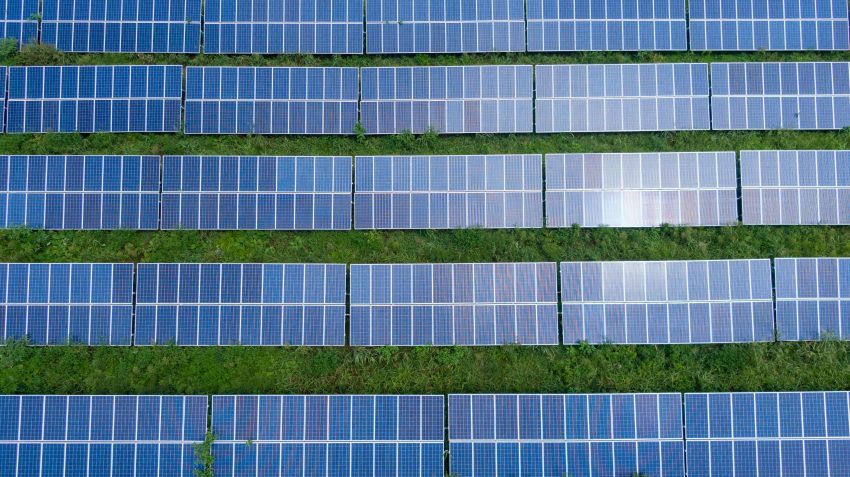Do the Pros Outweigh the Cons of Solar Panels?
Solar energy has emerged as a frontrunner in the quest for sustainable and clean energy sources. The increasing popularity of solar panels raises a crucial question: do the pros outweigh the cons? In this article we will explore the various facets of solar panels analyzing their advantages and drawbacks to determine their overall impact on our environment economy and daily lives. Do the Pros Outweigh the Cons of Solar Panels?
Pros of Solar Panels
Renewable Energy Source
One of the primary advantages of solar panels is their reliance on a renewable energy source—sunlight. Unlike fossil fuels which deplete over time sunlight is an abundant and everlasting resource. This ensures a continuous and sustainable energy supply contributing to longterm environmental preservation.
Cost Savings and Financial Incentives
While the initial installation cost of solar panels can be substantial the longterm financial benefits are significant. Reduced electricity bills government incentives and tax credits make solar energy an economically viable choice for homeowners and businesses alike. Over time the return on investment becomes apparent providing a compelling financial incentive.
Environmental Benefits
Solar panels contribute to a cleaner environment by producing electricity without emitting harmful pollutants. The reduction in greenhouse gas emissions aids in combating climate change and mitigating its adverse effects on the planet. This environmental stewardship aligns with global efforts to transition towards sustainable practices.
Low Maintenance and Long Lifespan
Solar panels require minimal maintenance with routine cleaning being the primary upkeep. Additionally they boast a long lifespan often exceeding 25 years. This durability not only reduces the frequency of replacements but also enhances the overall costeffectiveness of solar energy systems.
Cons of Solar Panels
High Initial Costs
One of the most significant barriers to solar panel adoption is the high upfront cost of installation. While the longterm savings are substantial the initial investment can be prohibitive for some individuals and businesses.
Intermittent Energy Production
Solar panels depend on sunlight for energy production leading to intermittent power generation. Cloudy days and nighttime render solar panels less effective. Addressing this intermittency is crucial for ensuring a consistent energy supply.
Aesthetic Concerns
The visual impact of solar panels on buildings and landscapes has been a point of contention. Some argue that solar panels can detract from the aesthetic appeal of structures. Balancing functionality with design aesthetics is an ongoing challenge for the solar industry.
Energy Storage Challenges
Storing excess energy generated during peak sunlight hours remains a technological challenge. Efficient energy storage solutions are essential to harness solar power during periods of low sunlight ensuring a steady energy supply.
Economic Impact
Job Creation in the Solar Industry
The adoption of solar energy contributes to job creation particularly in the solar industry. From manufacturing to installation and maintenance the demand for skilled professionals fosters economic growth and employment opportunities.
Decreased Reliance on NonRenewable Resources
As solar energy becomes more prevalent there is a corresponding decrease in reliance on nonrenewable resources. This shift has positive implications for energy security and reduces the environmental impact associated with fossil fuel extraction and consumption.
Technological Advancements
Improvements in Solar Panel Efficiency
Ongoing research and development have led to continuous improvements in solar panel efficiency. Higher efficiency rates translate to increased energy production addressing concerns related to intermittency and expanding the applicability of solar energy.
Emerging Solar Technologies
Beyond traditional solar panels emerging technologies such as solar paint and solar windows are on the horizon. These innovations hold the potential to revolutionize the integration of solar energy into various facets of our daily lives.
Government Policies and Incentives
Supportive Policies Promoting Solar Adoption
Many governments worldwide have implemented policies to encourage the adoption of solar energy. These policies include feedin tariffs renewable portfolio standards and regulations that facilitate the integration of solar systems into existing infrastructure.
Financial Incentives and Tax Credits
Financial incentives and tax credits further incentivize individuals and businesses to invest in solar energy. These measures not only make solar solutions more accessible but also contribute to the overall growth of the solar industry.
Case Studies
Success Stories of Solar Panel Implementation
Examining realworld case studies provides valuable insights into the successful implementation of solar panels. From residential installations to largescale solar farms these cases highlight the positive impact of solar energy across diverse settings.
Challenges Faced and Overcome
In exploring case studies it is crucial to acknowledge the challenges faced by solar projects and how innovative solutions have been developed to overcome them. Learning from both successes and setbacks is essential for the continued advancement of solar technology.
Addressing Aesthetic Concerns
Integrating Solar Panels into Architectural Designs
Architectural integration is a key focus for addressing aesthetic concerns. The seamless incorporation of solar panels into building designs ensures functionality without compromising visual appeal.
Innovations in Solar Panel Aesthetics
Ongoing innovations in solar panel aesthetics such as customizable designs and color options aim to provide consumers with choices that align with their preferences. These innovations contribute to the acceptance of solar panels as a viable and aesthetically pleasing energy solution.
Environmental Impact
Reduction in Carbon Footprint
The primary environmental benefit of solar panels is the significant reduction in carbon footprint. By generating electricity without relying on fossil fuels solar energy plays a crucial role in combatting climate change and preserving the health of our planet.
Mitigation of Climate Change
The global impact of mitigating climate change cannot be overstated. Solar panels contribute to the reduction of greenhouse gas emissions helping to stabilize and reverse the adverse effects of climate change on a planetary scale.
Community Engagement
Public Awareness and Education
Community engagement is vital for the widespread adoption of solar energy. Public awareness campaigns and educational initiatives help dispel myths address misconceptions and empower individuals to make informed decisions about solar energy adoption.
Community Solar Initiatives
Collaborative efforts within communities such as community solar initiatives enable shared access to solar energy benefits. These initiatives foster a sense of community and collective responsibility towards sustainable practices.
Addressing Intermittency
Advancements in Energy Storage Technologies
Efforts to address the intermittency of solar energy include advancements in energy storage technologies. Storage solutions such as batteries help store excess energy for later use ensuring a consistent power supply even during periods of low sunlight.
Grid Integration Solutions
Integrating solar energy into existing grids requires innovative solutions. Smart grid technologies and improved grid infrastructure contribute to seamless integration enhancing the reliability of solar energy as a mainstream power source.
Social Implications
Empowering Communities with Solar Energy
Solar energy has the potential to empower communities particularly in remote areas with limited access to conventional power sources. The decentralized nature of solar energy allows for local generation and consumption reducing dependence on centralized power grids.
Access to Electricity in Remote Areas
The social impact of providing access to electricity in remote areas cannot be overstated. Solar panels offer a practical solution for bringing power to communities that may otherwise be overlooked by traditional energy infrastructure.
Future Trends
Anticipated Developments in Solar Technology
The future of solar energy holds exciting possibilities. Anticipated developments include increased efficiency enhanced energy storage capabilities and the integration of solar technology into a broader range of applications.
Global Trends in Solar Energy Adoption
As technology advances and awareness grows global trends in solar energy adoption are expected to rise. International collaborations policy developments and increased public acceptance will contribute to the widespread integration of solar solutions.
Public Perception
Changing Attitudes Towards Solar Energy
Public perception plays a crucial role in the adoption of solar energy. Changing attitudes towards sustainability coupled with a better understanding of the benefits of solar panels contribute to a positive shift in public opinion.
Overcoming Misconceptions
Addressing misconceptions about solar energy is essential for fostering widespread acceptance. Education and awareness campaigns play a pivotal role in dispelling myths and ensuring that the public is wellinformed about the true potential and benefits of solar panels.
Final Word
In the pros and cons of solar panels present a complex but promising landscape. While challenges such as high initial costs and intermittency exist the numerous benefits including environmental preservation economic growth and societal empowerment underscore the positive impact of solar energy. The ongoing advancements in technology and supportive government policies further enhance the prospects of solar panels as a sustainable and viable energy solution.
FAQs
- Are solar panels expensive to install?
- While the initial installation cost can be high longterm savings and incentives make solar panels financially viable.
- Do solar panels work during cloudy days?
- Solar panels are less effective on cloudy days but they can still generate some power in diffuse sunlight.
- How long do solar panels last?
- Solar panels typically have a lifespan of over 25 years with minimal maintenance requirements.
- What are the environmental benefits of solar panels?
- Solar panels reduce carbon footprint by generating electricity without emitting pollutants contributing to climate change mitigation.
- How can communities benefit from solar energy?
- Solar energy empowers communities by providing access to electricity particularly in remote areas and fostering local economic growth.

Source of Image: https://www.pexels.com/photo/top-view-photo-of-solar-panels-2800832/
